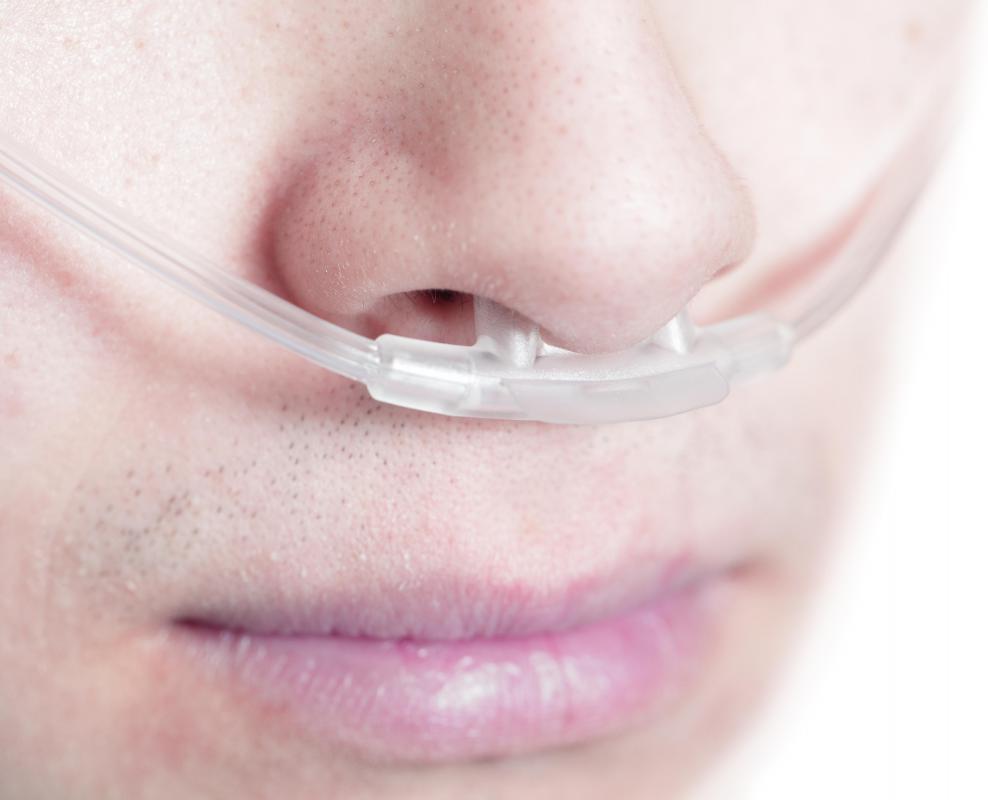At TheHealthBoard, we're committed to delivering accurate, trustworthy information. Our expert-authored content is rigorously fact-checked and sourced from credible authorities. Discover how we uphold the highest standards in providing you with reliable knowledge.
How Do I Give First Aid for a Nose Bleed?
The amount of first aid for a nose bleed you need to give depends on the severity of the bleed. Some nose bleeds can be treated by pinching the person's nose. If the bleeding does not stop after a set amount of time, however, you need to call a professional. You may also need to call a professional immediately if the person has certain conditions or an accident occurred. A key part of first aid for a nose bleed is preventing the bleeding from recurring.
When your nose begins to bleed, first sit down. If someone else's nose is bleeding, instruct that person to sit. Keep your posture or the other person's posture straight and upright. Sitting up instead of lying down or leaning back lessens the amount of pressure in the veins of the nose, reducing bleeding.
Have the person lean forward slightly when giving first aid for a nose bleed. You do not want him or her to swallow the blood. The head should never tilt back.

Apply pressure to the nose to stop the bleeding when giving first aid for a nose bleed. Use your thumb and index finger to grip your nose or the person's nose. Pinch the nose firmly. You or the other person will have to breathe through the mouth while pinching the nose. Hold the nose for at least five minutes.
Check the nose for bleeding after five minutes. If it has stopped, you do not need to continue to give first aid for a nose bleed. Continue to pinch the nose if it keeps bleeding. Call a professional if the nose is still bleeding after 10 or 20 minutes.

You should call a medical professional right away if a person's nose begins to bleed and she is taking blood thinners or has a known blood disorder. If the bleeding starts after a punch in the nose or other forceful contact, call a doctor immediately. The nose could be broken.
After a nose bleed, be very careful with the area so that the bleeding does not start up again, even if the bleeding stopped after a few minutes. Don't let anyone pick at the nostrils or place any foreign objects in the nose. Avoid bending your head down for several hours after the bleed. Ideally, your nose should stay above the level of your heart. Take it easy for a few hours and don't try to run or exercise after a nose bleed.
AS FEATURED ON:
AS FEATURED ON:














Discussion Comments
When a child's nose begins to bleed, in addition to keeping her calm and pinching her nose, I distract her attention with a toy. This helps to take her mind off the situation until the bleeding stops.
When giving first aid for a nose bleed, it is also important to encourage the person you are treating to stay calm and not to panic. This is especially important when it comes to children that may become very upset at the sight of blood.
If the person becomes very upset and anxious, the heart will beat faster. This will make it more difficult to stop the nose from bleeding. Reassure him or her that the situation is under control, and staying calm will help stop the nose bleed.
Post your comments